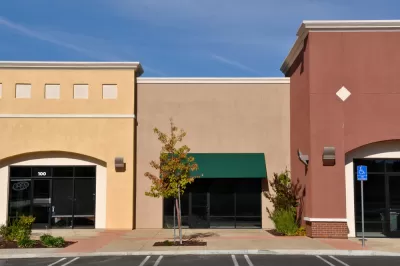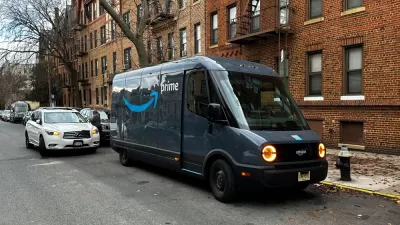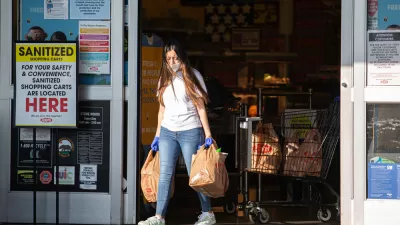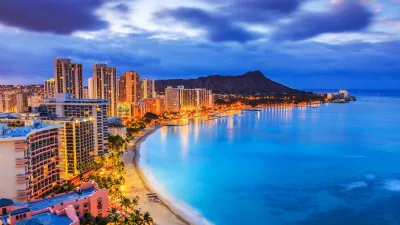The race to deliver goods at lightning speed has the potential to create 'dark cities' as street-level storefronts give way to closed-off warehouses only frequented by delivery workers.

Lev Kushner and Greg Lindsay posit that the growing trend of 'instant' delivery services "threatens to transform downtowns into dark cities, where the everyday commerce that gives streets their vitality has evaporated from view and been reconstituted on an app."
According to Kushner and Lindsay, app-based delivery services have started to occupy significant portions of commercial real estate in cities, replacing formerly vibrant storefronts with private warehouses. This threatens not just urban street life, they argue, but also the small businesses and restaurants that used to occupy street-level retail spaces. "The demand for convenience is seemingly bottomless, but no city has yet found a way to balance the short-term benefit of personal convenience against the long-term costs of eroding community life through decreased social interaction."
The article cautions public officials to anticipate the impact of these new business models, rather than try to retroactively regulate a new industry like they have with ride-hailing and short-term rentals. The authors recommend simplifying retail permitting, developing policies that incentivize mixed-use development, and improving transportation infrastructure to prepare for more delivery vehicles and workers.
While there is a place for a delivery industry, the article warns, "cities need to start thinking seriously, now, about how residents’ personal choices, and the businesses that respond to those demands, can unintentionally transform our cities and communities." In the same way that ride-hailing has added to congestion and vacation rentals have destabilized local housing markets, the 15-minute delivery model could have significant unintended impacts on urban life.
FULL STORY: The Dark Side of 15-Minute Grocery Delivery

Alabama: Trump Terminates Settlements for Black Communities Harmed By Raw Sewage
Trump deemed the landmark civil rights agreement “illegal DEI and environmental justice policy.”

Planetizen Federal Action Tracker
A weekly monitor of how Trump’s orders and actions are impacting planners and planning in America.

The 120 Year Old Tiny Home Villages That Sheltered San Francisco’s Earthquake Refugees
More than a century ago, San Francisco mobilized to house thousands of residents displaced by the 1906 earthquake. Could their strategy offer a model for the present?

In Both Crashes and Crime, Public Transportation is Far Safer than Driving
Contrary to popular assumptions, public transportation has far lower crash and crime rates than automobile travel. For safer communities, improve and encourage transit travel.

Report: Zoning Reforms Should Complement Nashville’s Ambitious Transit Plan
Without reform, restrictive zoning codes will limit the impact of the city’s planned transit expansion and could exclude some of the residents who depend on transit the most.

Judge Orders Release of Frozen IRA, IIJA Funding
The decision is a victory for environmental groups who charged that freezing funds for critical infrastructure and disaster response programs caused “real and irreparable harm” to communities.
Urban Design for Planners 1: Software Tools
This six-course series explores essential urban design concepts using open source software and equips planners with the tools they need to participate fully in the urban design process.
Planning for Universal Design
Learn the tools for implementing Universal Design in planning regulations.
Clanton & Associates, Inc.
Jessamine County Fiscal Court
Institute for Housing and Urban Development Studies (IHS)
City of Grandview
Harvard GSD Executive Education
Toledo-Lucas County Plan Commissions
Salt Lake City
NYU Wagner Graduate School of Public Service





























